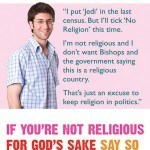It has been a big week in my ongoing spiritual odyssey, as I wrestle with my agnostic contradictions. My anti-Church hackles were raised, all too predictably, by the Church of England’s response to the Government’s consultation on gay marriage. But I was was disarmed by the response of a priest to a blog on the subject. And then I chanced into hearing an episode of Richard Holloway’s radio series Honest Doubt.
First that Church response on gay marriage. To start with I relied on news reports, mainly from the BBC. And these were (predictably) provocative – saying that the Church felt the issue to be one of the gravest in its 500 year history, and implying that the Church still considered marriage to be about having children. I could not but feel this was a calculated insult to my own, childless, marriage.
But rather than sounding off in that vein, I thought I had bet read it (summary here, with link to the full response). It was of course, much more measured. But it also cut no ice. Indeed it seemed to be just begging the question (in the proper sense of being circular rather than the common usage of “inviting the question”). Two problems preoccupy the drafters: first that it changes the meaning of marriage. To which the liberal response is, “Well spotted. So?” The second worry follows: it means that the Church’s definition of marriage will no longer follow the state’s. They say that there should be no difference between “religious” and “state” marriage; there should be just marriage. The natural response from liberals is, “Well, that’s entirely up to you. Why should that bother us?” The Church marriage would be fully recognised by the state; it would be a subset of state marriage. Actually, the reason for the Church to worry about this distinction was spotted by many commentators. It is part of that wedge with is slowly separating the Church of England from the state and may one day force its disestablishment. But to most people the establishment status of the Church is just an ornament with nostalgic value, rather like the monarchy. Few are against it, unless it tries to flex its muscles. Trying to prevent overdue change to civil customs is just such a muscle flexing: and if it leads to disestablishment, so be it.
On reflection it is difficult to be angered by the Church’s position. It is just demonstrates all the disappointment I have in it and other Christian institutions. It just cannot reinterpret ancient principles in light of its more fundamental principles and our changing understanding of the world. It is just heading for the dustbin of history.
Meanwhile atheistic Lib Dem blogger Mark Pack challenged the Church on the grounds of historical inconsistency. One of his posts was entitled Could a theologian please help…? The point at issue was divorce rather than the single sex bit – if the Bible says that marriage was to be for ever, why did they change their view on remarrying the divorced? Typical smart Alick stuff from an outside commentator. But it drew a long and wonderful response from a Methodist minister, Philip Wren. He took time to start with the biblical quote from the Gospel of St Mark that defines the basis of marriage (“…what God has made let no man cast asunder.”) But he explained it in terms of the tension between forgiveness and sin. It’s the sort of stuff that reminds me why I’m agnostic rather than atheist – Christianity is not about neat, cut and dried rules. It’s about love and redemption.
This was enough to throw the Christian religion back into a more favourable light. And then, by accident, I caught one of the BBC Radio 4 talks on “Honest Doubt” on Friday, tackling the issue of morality – if we throw out God and religion, on what basis do we found and enforce morality? The honesty with which it confronted the question made me stop in my tracks. I immediately went find other talks in the series from the BBC website. Unfortunately the it isn’t available in podcast, and they apply a strict 7 day rule – so I could only backtrack a week on iPlayer, and missed the first 10 episodes (it extremely irritating when BBC do this, for no good reason that I can see). I wasn’t disappointed as the series went through the various Victorian thinkers’ reactions as the faith was shaken to its foundations by a series of shocks. I was particularly taken with Keats’s idea that truth comes from the process of doubt itself.
The talks are given by Richard Holloway, a former Bishop of Edinburgh and professor of theology. I was hugely struck by the way a religious person could have the courage to confront deep questions that few dare to (amongst atheists as well as churchmen). If they could do this, I thought, there was hope for the church yet. I could be a member of a church that contained Richard Holloway. As I researched Dr Holloway (my practice of using people’s titles as a mark of respect causes difficulties here – his not a bishop or a professor; I assume he is a doctor though!) I was not reassured, though. He resigned from being a bishop, and now describes himself as an agnostic – his views taking him beyond the pale so far as the official church is concerned. My struggle continues, but it is good to know that I am not alone.
The talks are given by


